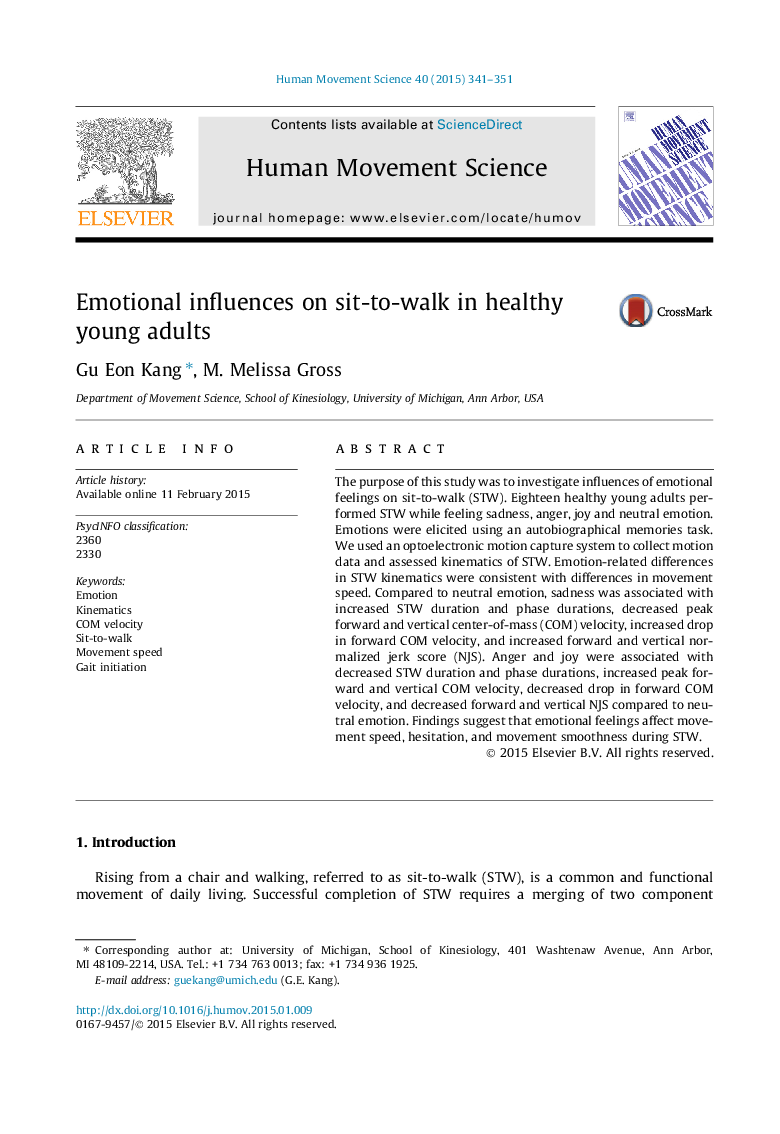| Article ID | Journal | Published Year | Pages | File Type |
|---|---|---|---|---|
| 7292149 | Human Movement Science | 2015 | 11 Pages |
Abstract
The purpose of this study was to investigate influences of emotional feelings on sit-to-walk (STW). Eighteen healthy young adults performed STW while feeling sadness, anger, joy and neutral emotion. Emotions were elicited using an autobiographical memories task. We used an optoelectronic motion capture system to collect motion data and assessed kinematics of STW. Emotion-related differences in STW kinematics were consistent with differences in movement speed. Compared to neutral emotion, sadness was associated with increased STW duration and phase durations, decreased peak forward and vertical center-of-mass (COM) velocity, increased drop in forward COM velocity, and increased forward and vertical normalized jerk score (NJS). Anger and joy were associated with decreased STW duration and phase durations, increased peak forward and vertical COM velocity, decreased drop in forward COM velocity, and decreased forward and vertical NJS compared to neutral emotion. Findings suggest that emotional feelings affect movement speed, hesitation, and movement smoothness during STW.
Related Topics
Life Sciences
Neuroscience
Cognitive Neuroscience
Authors
Gu Eon Kang, M. Melissa Gross,
